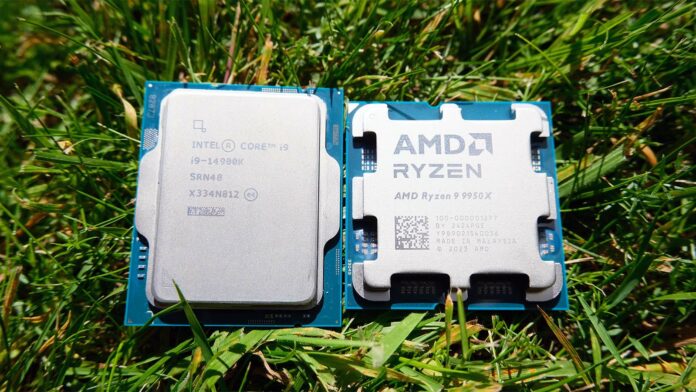On the surface, pitting AMD Ryzen 9 9950X vs. Intel Core i9-14900K is a pretty one-sided affair. While Team Red doesn’t do much to push the needle forward with the same topology as its predecessors, the flagship dominates most tests with a convincing lead, at least until price comes into the equation.
The main question in this Clash of the Titans is, how much of a premium are you willing to pay for the performance uplift? We’ve conducted fresh application and game benchmarks that should help you figure out the best CPU upgrade for you.
Specs
| Model | Cores / Threads | TDP | L3 Cache | Base Clock | Boost Clock | Launch MSRP |
|---|---|---|---|---|---|---|
| Ryzen 9 9950X | 16 / 32 | 170W | 64MB | 4.3GHz | 5.7GHz | $649 / £610 |
| Core i9-14900K | 24 / 32 | 125/253W | 36MB | 3.2GHz | 6.0GHz | $589 / £579 |
Just like AMD Ryzen 7 9700X and Ryzen 5 9600X, Team Red’s flagship holds no surprises with the same core-and-thread count as the past two generations. This places it on par with Core i9-14900K, featuring 32 threads apiece, although Intel sneaks a few extra efficient cores in there for good measure.
Although the company hasn’t done much to change AMD Ryzen 9 9950X vs. AMD Ryzen 9 7950X3D, the new chip still has plenty more L3 Cache than Intel. This should give it a leg up in gaming, but it’ll still struggle to justify the extra cost when Core i9-14900K has fallen from a comparatively lower launch price to a current MSRP of £543.
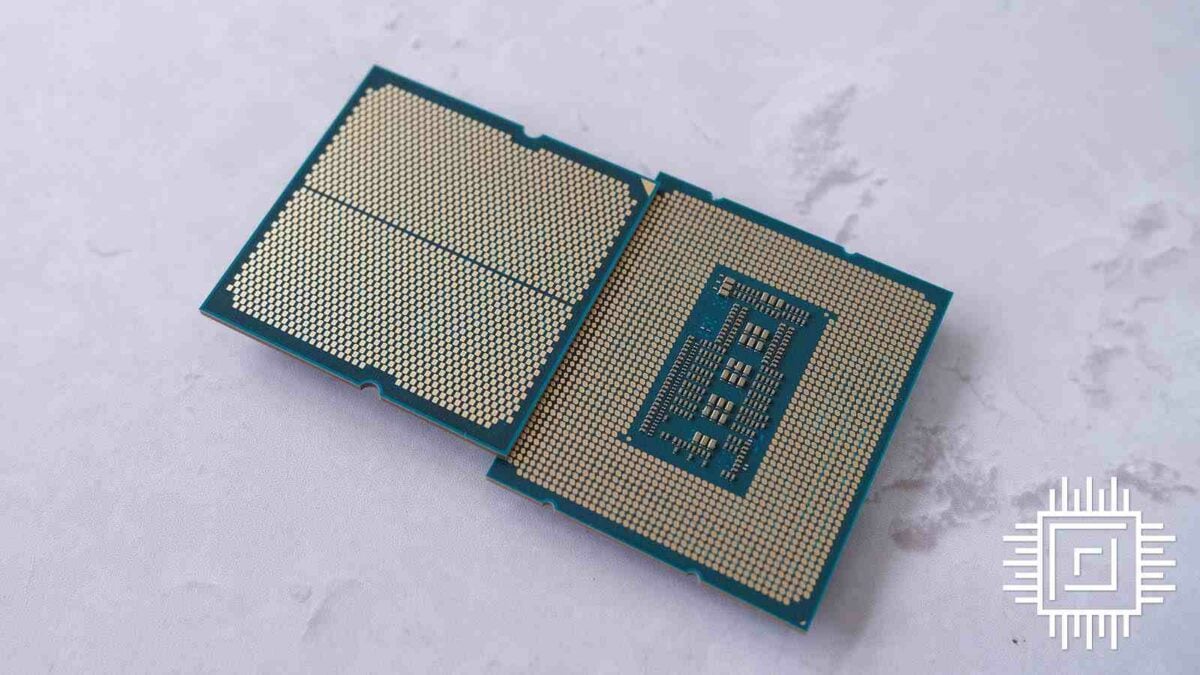
Performance
In order to keep things fair, we’ve redone all our benchmarks from the ground up. Our Intel chip rests on ASRock Phantom Gaming Z790 Nova WiFi while AMD mounts MSI X670E Ace. We keep everything to the recommended TDPs and only use the latest BIOS available.
Arctic Liquid Freezer III 420 cools each to keep temperature readings consistent, while a Zotac GeForce RTX 4090 provides the visuals. Rounding out the rest of our test bench is 64GB Kingston Fury Beast DDR5-6000 RAM, and be quiet! Straight Power 13 1,300W for power.
Productivity

Intel Core i9-14900K is far from paltry with 209,327MIPS, but it still struggles against the might of AMD Ryzen 9 9950X and its 230,019MIPS. Zen 5’s architectural nips and tucks seem particularly pertinent in 7-Zip Compression tests. Not bad for a processor on a diet.

Y-Cruncher is particularly sensitive to AMD applications, as Ryzen 9 7950X already beats Intel’s best. Therefore, it stands to reason that Ryzen 9 9950X is an absolute beast, trouncing its rival with relative ease.

When core count doesn’t matter, Zen 5 is a veritable powerhouse that smashes single-core benchmarks. It’s the same story across the entire 9000 Series stack, and AMD’s flagship sits on its throne at the top.

Put all cores to work and Intel inches past the finish line by a toe. Core i9-14900K certainly benefits from more cores to play with, although it’s far from a decisive victory.

Machine learning is the name of the game for Ryzen 9000, which places emphasis on AI applications. Geekbench 6 showcases the prowess of 9950X, which flows through float32, float16, and int8 data types without a hiccup. Admittedly, there are better CPUs out there for this workload, including Ryzen 9700X, but Intel isn’t quite in the same ballpark as any of the new AMD chips.
Rendering

Ryzen 9 9950X is a marked improvement over 7950X, which already left Core i9-14900K in the wing mirror. Processing 603 samples per minute outdoes every desktop CPU we’ve tested so far, showing a 20% uplift over Intel’s best Raptor Lake Refresh.


Cinebench 2024 proves the antithesis of Geekbench 6. Not only is it a much closer battle in the single-core arena, but results are also flip-turned upside down in multi-core as AMD takes the crown in both.



As you’d expect from a new flagship, Ryzen 9 9950X runs rings around Core i9-14900K in productivity apps, presenting a strong case for Zen 5 when it comes to rendering and popular productivity applications.
Memory



Since AMD uses the same topology as its predecessors, memory remains something of an Achilles Heel for Ryzen compared to Intel. Core i9-14900K remains far quicker in AIDA’s read and write speed benchmarks but relinquishes latency to 9950X. Good luck noticing a 0.5ns difference, though.
Gaming

Paired with an Nvidia GeForce RTX 4090, there’s very little in it between these processors. Each manoeuvres around DirectX 12 Ultimate, real-time ray tracing, and global illumination with ease.
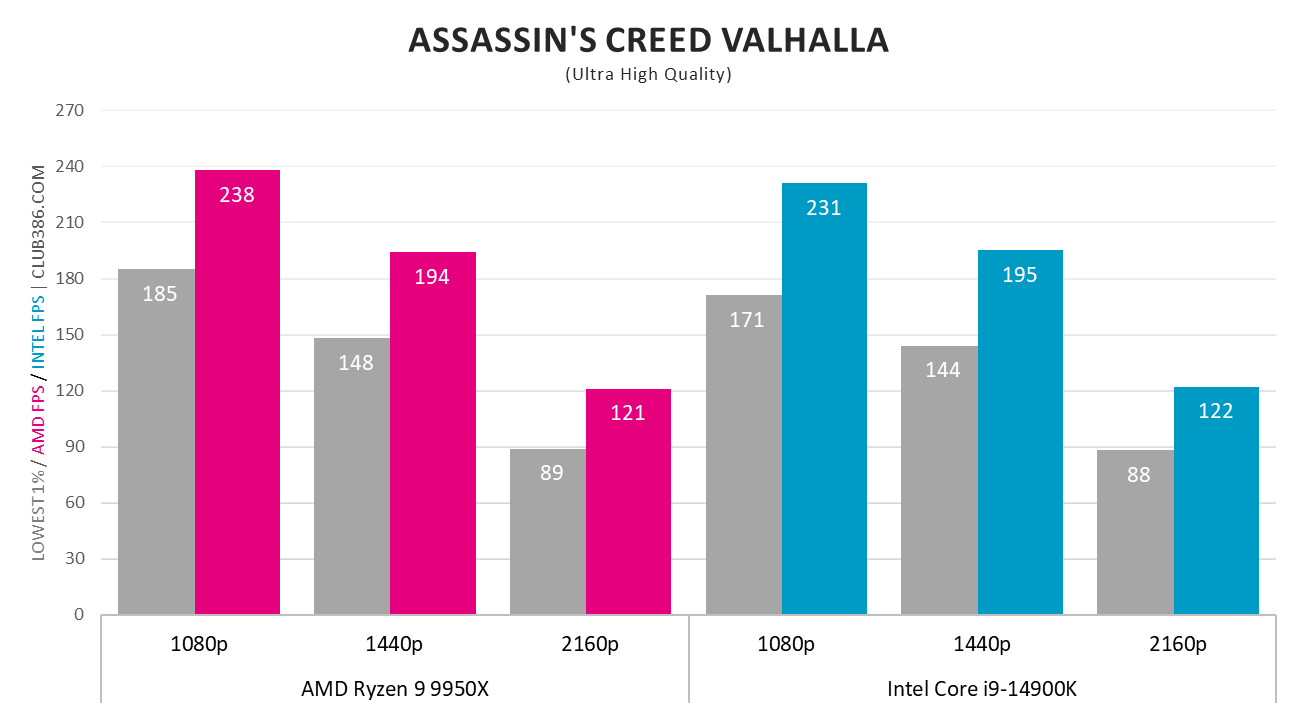
It’s a dead heat when playing Assassin’s Creed Valhalla at high resolutions, but Ryzen 9 9950X gets a 7fps lead at 1080p. AMD also shows slightly more consistency with the lowest 1%.
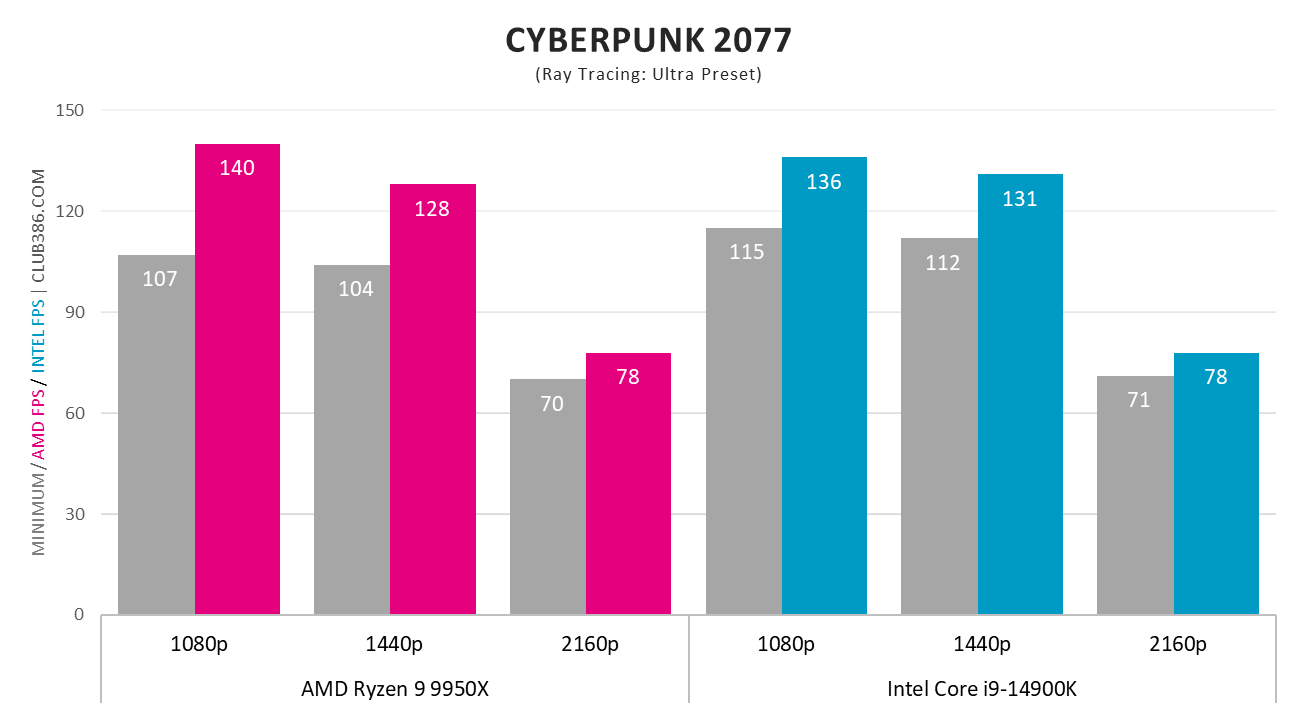
The reverse is true in Cyberpunk 2077. While Ryzen 9 9950X maintains a marginal lead at FHD, Intel is far more consistent with its dips. You’ll certainly notice 140fps dropping to 107fps more than 136fps slipping to 115fps on occasion.
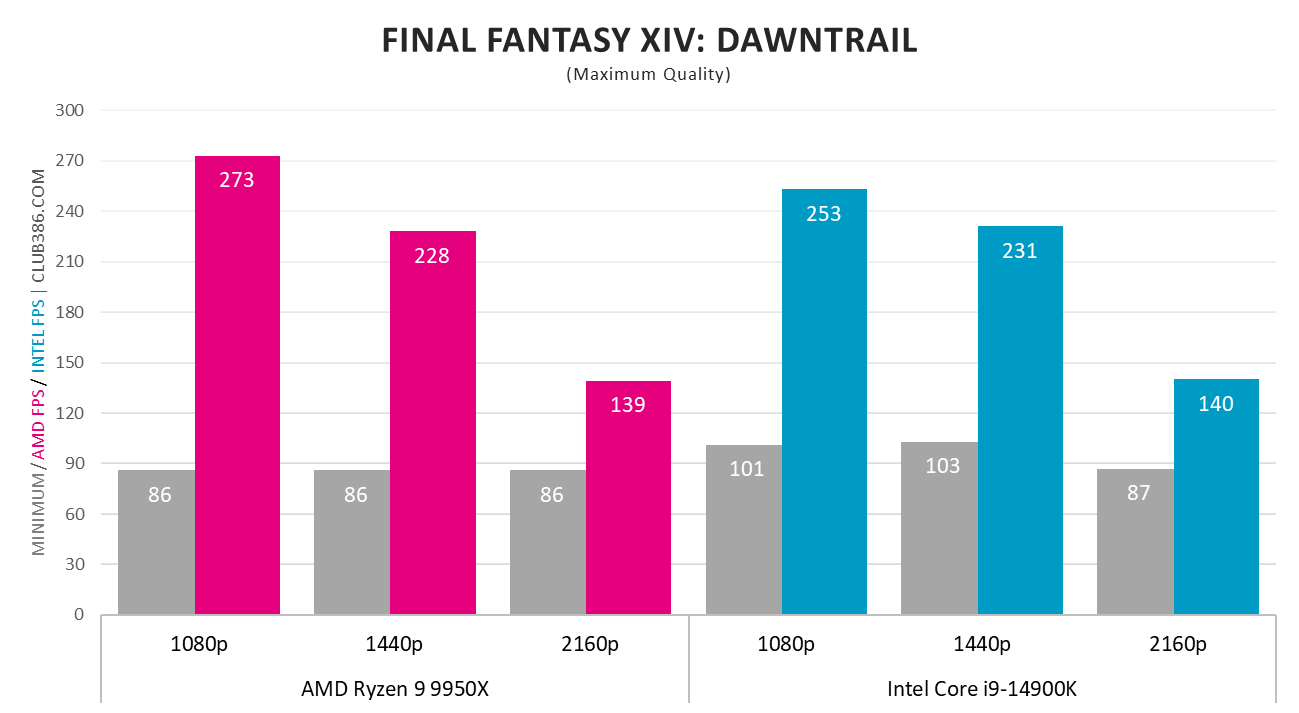
Final Fantasy XIV: Dawntrail loves Zen 5 at 1080p, affording 9950X a substantial 20fps advantage. Things even out at higher resolutions, although Intel once again has better lows. In this instance, however, you’d certainly notice any of these dips that come your way.
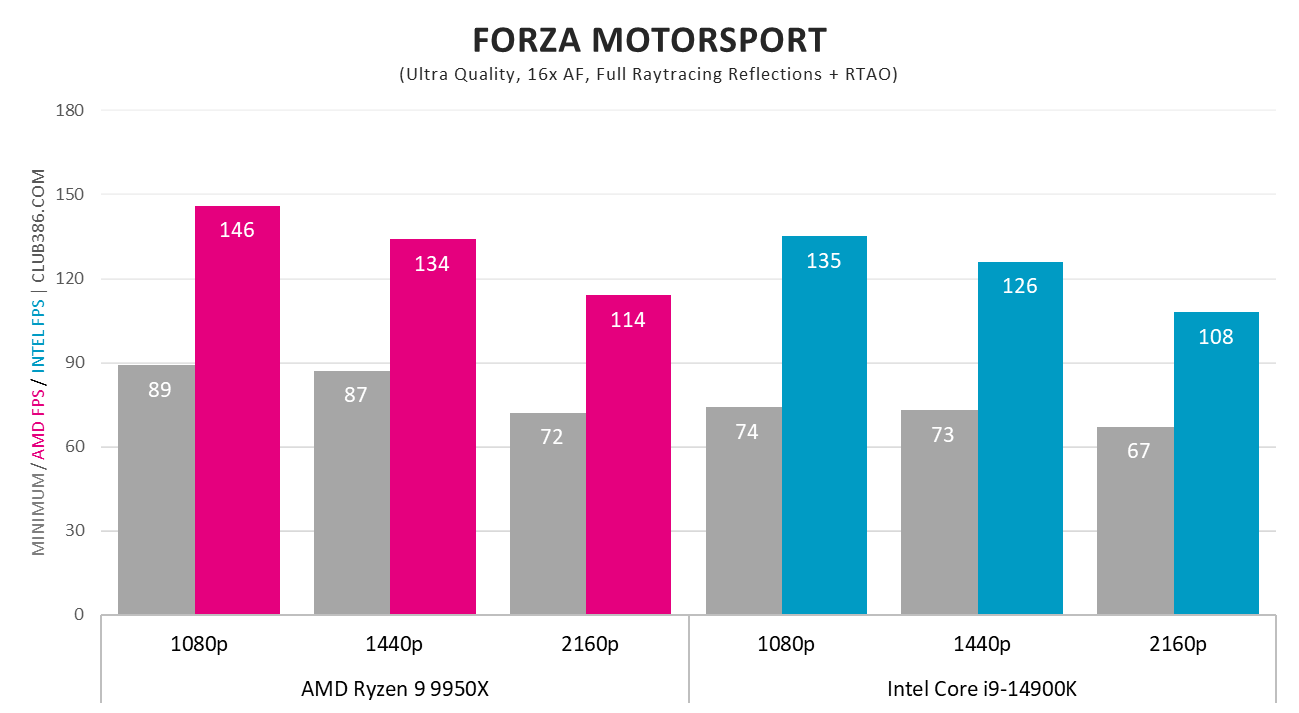
Forza Motorsport is team AMD all the way, offering between a 5-8% uplift on average frame rates at all resolutions. Even the minimums are between 7-20% more reliable.
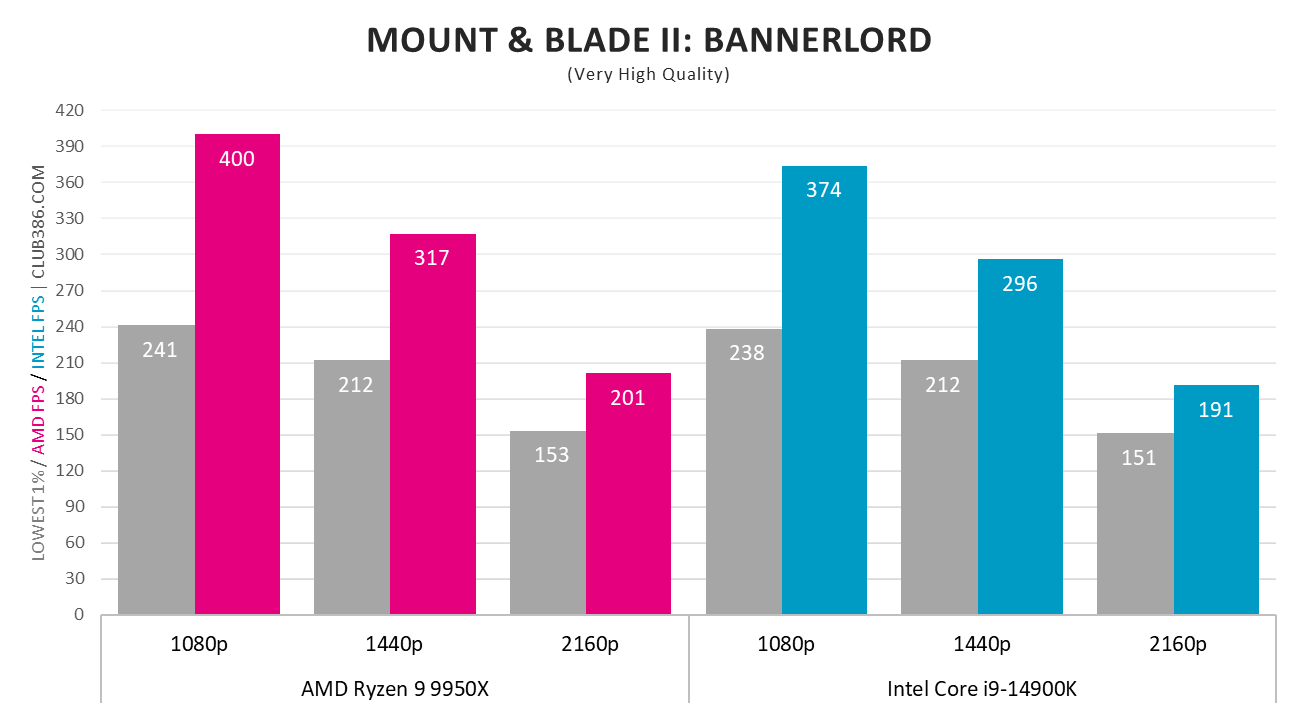
We’re seeing red, as it’s a clean sweep for AMD in Mount & Blade II: Bannerlord. Leaving Core i9-14900K in the dust, Ryzen 9 9950X gains an average of 26fps more at 1080p, 21fps more at 1440p, and 10fps more at 4K. It does make you wonder just how well the X3D cache will perform once it inevitably reaches Ryzen 9000 processors.
Efficiency

Efficiency is the pride and joy of AMD’s latest range, and this is no exception. Even though Ryzen 9 9950X gobbles a lot more than its peers to feed its increased core count, it still undercuts Intel’s flagship by a considerable margin. Its higher idle wattage is less than ideal, consuming more than anything else we’ve tested, but that’s the price of performance here.

Keeping a cool head isn’t easy, but it’s something Ryzen 9 9950X does extremely well at just 73.4°C. Comparatively, i9-14900K is one of the hottest chips to pass through our halls, risking throttling as it climbs towards 92.8°C.
Value

Dividing our Cinebench 2024 multi-core scores by system-wide power consumption gives us our Club386 CPU Efficiency rating. It’s usually a sweep for AMD, and 9950X expectedly follows suit with the second-highest score yet. All the better when remembering it’s the clear winner in most benchmarks.

Value tells a different story. This time, we divide the same Cinebench 2024 score by launch MSRP. Although AMD is headed in the right direction with a lower recommended price than the previous gen, it still asks a lot for what it is and forgets Intel has already had a series of discounts. At $546.39 currently, Core i9-14900K scores 3.97, widening the lead it already has.
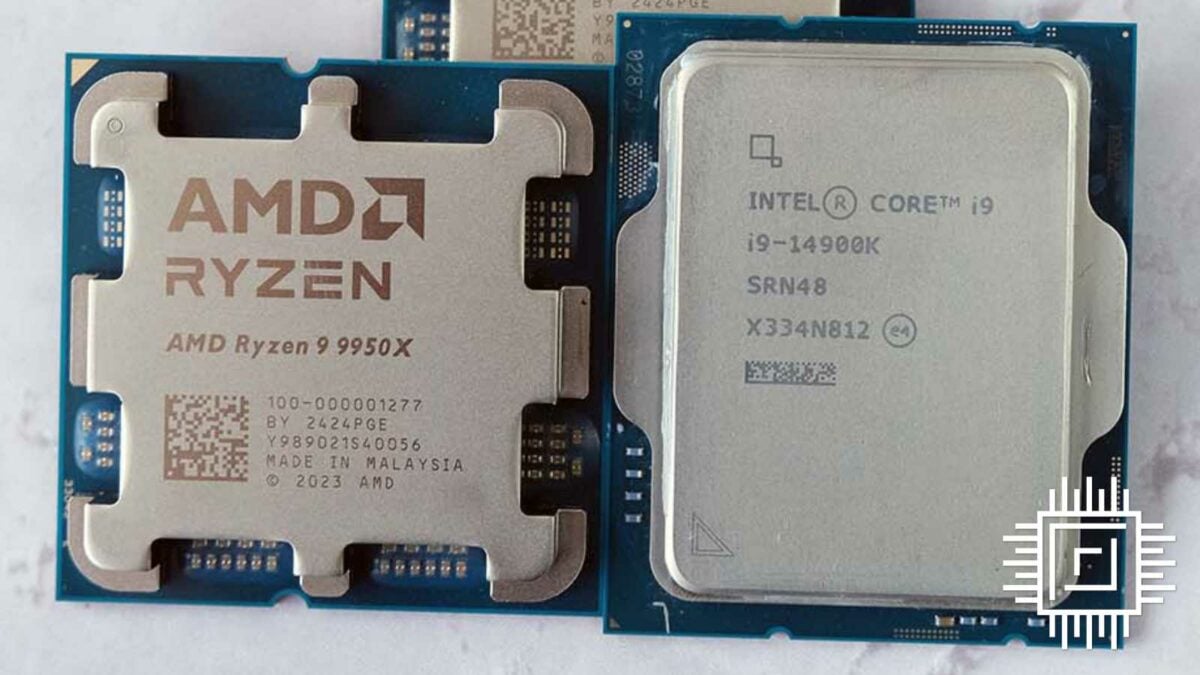
Conclusion
AMD Ryzen 9950X practically runs away with it in most tests, showing a distinct uplift in both gaming and productivity. Of course, you’ll always be wondering what if it followed Ryzen Threadripper Pro and popped more cores on, but it comfortably sits at the top of its stack with a 16C32T layout. Built on top of the AM5 socket, there’s a clear upgrade path that will be supported until at least 2027 and beyond.
At first glance, it looks like the Raptor Lake Refresh champ has fallen from grace, but it has an ace up its sleeve. While Intel Core i9-14900K claims victory in memory speeds, the star of the show is its value, especially after a year of reductions. On average, it’s 15% slower in synthetic benchmarks and 5.8% slower in games at 1080p. Things mostly even out around 1440p and 4K resolutions for them not to be a factor. However, with the most recent discounts, you save 18.8% compared to AMD’s latest.
My first suggestion is to wait and see what Intel has in store with Arrow Lake, which is still on track to debut in 2024. Based on a new LGA 1851 socket, it should bring a rival that’s closer in performance or, at the very least, drive down the cost of Ryzen. Otherwise, 9950X is the easy recommendation. It provides a better upgrade path and reasonable performance uplifts for the price. Besides, costs will eventually even out thanks to its superb efficiency.
Elsewhere, we’ve also compared AMD Ryzen 5 9600X vs. Intel Core i5-14600K and AMD Ryzen 7 9700X vs. Intel Core i7-14700K to give you the full picture.
AMD Ryzen 9 9950X
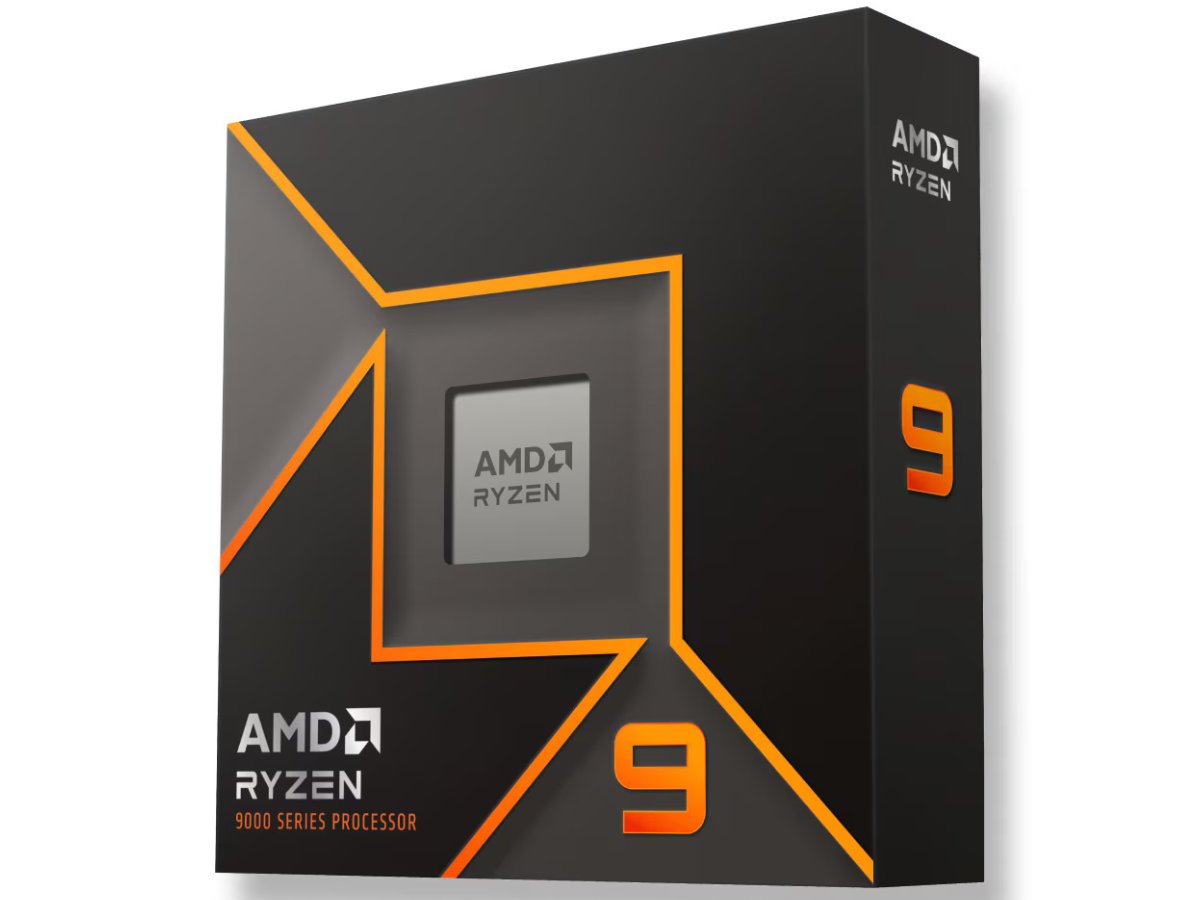
Intel Core i9-14900K
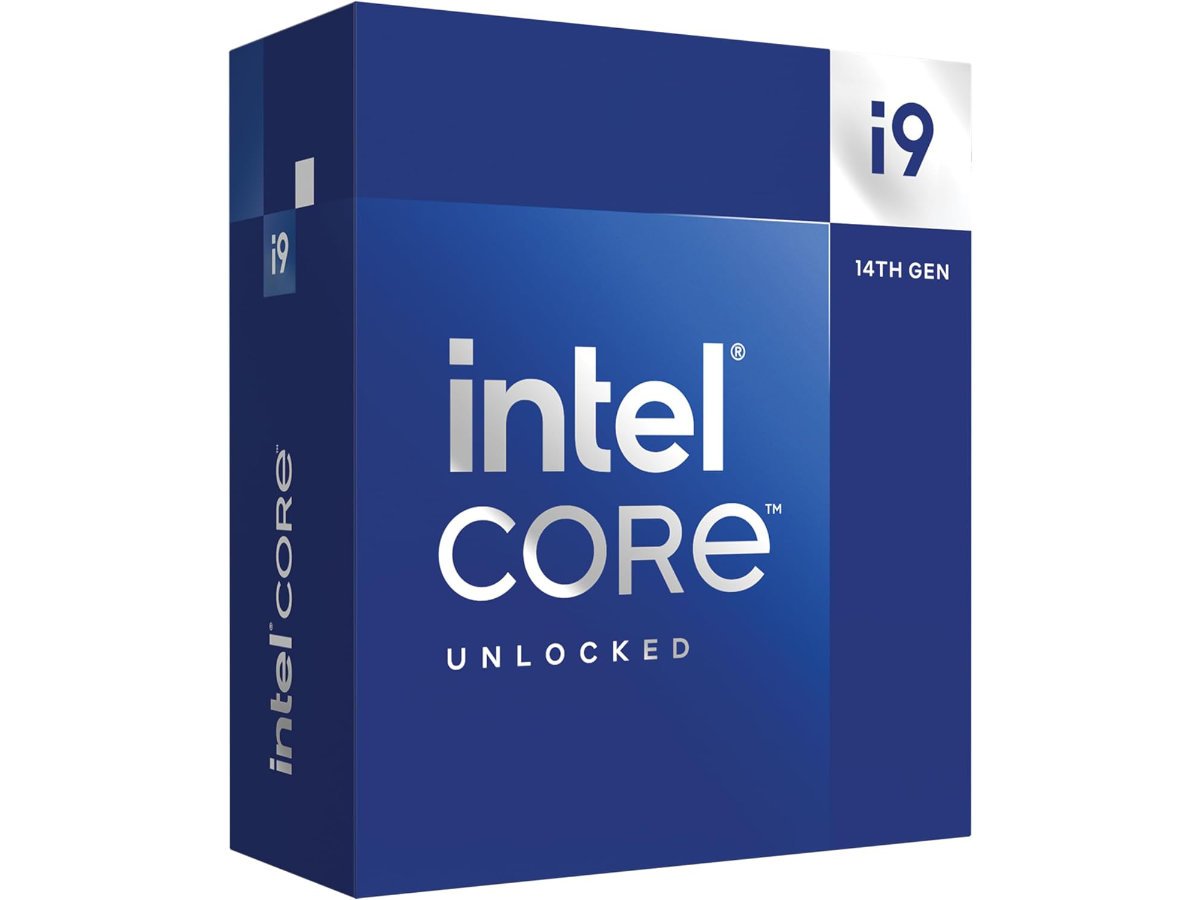
Club386 may earn an affiliate commission when you purchase products through links on our site. This helps keep our content free for all.
Rest assured, our buying advice will forever remain impartial and unbiased.
